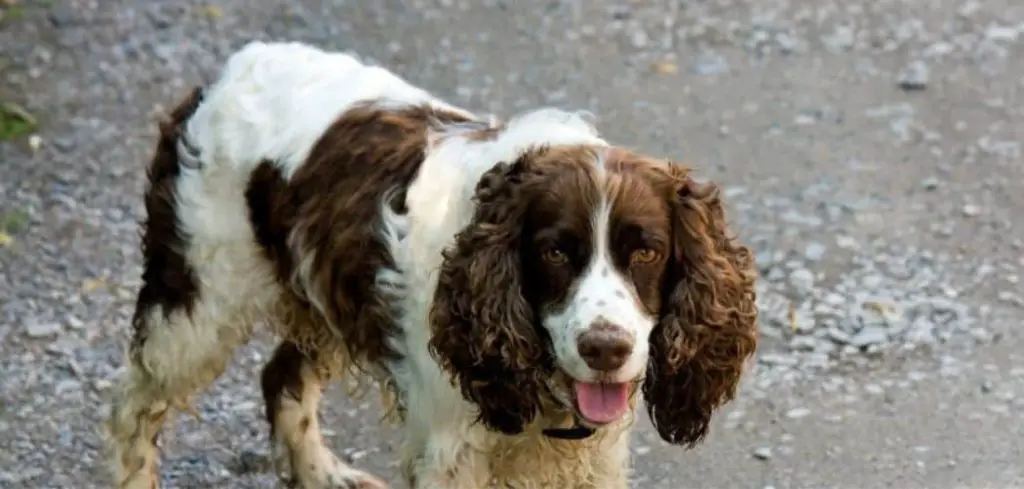If your dog is shaking and appears to be choking, it can be a frightening and dangerous situation. Whether it’s a momentary throat irritation or a life-threatening obstruction, knowing how to interpret and respond to these symptoms can make a critical difference.
We outline the common causes of dog shaking and choking, what you can do at home, and when to seek veterinary help.
Dog Shaking and Choking — Why It Happens
Dogs may shake and choke due to foreign object obstruction, respiratory infections, throat inflammation, or a collapsing trachea. Choking triggers distress, panic, and physical strain, while shaking is often a result of fear, pain, or oxygen deficiency.

Common Causes of Dog Shaking and Choking
Foreign Object in the Throat
A lodged bone, toy fragment, or food piece can get stuck in the throat or upper airway, causing choking.
Dogs may cough, gag, paw at their mouth, drool excessively, or make retching sounds.
Shaking is a sign of panic and the body’s reaction to reduced airflow.
If your dog cannot breathe or collapses, immediate emergency action is needed—try the canine Heimlich and get to a vet.
Read more: Dog Shaking and Panting (How to know when it’s pain or stress)
Collapsing Trachea
This common condition in small breeds causes the windpipe to narrow or collapse during breathing.
It results in a honking cough that may sound like choking, especially during excitement or after eating.
Dogs may also shake due to anxiety or difficulty breathing.
Weight control, anti-inflammatory medication, or surgery may be recommended.
Reverse Sneezing Confusion
Sometimes reverse sneezing episodes can be mistaken for choking.
Dogs extend their necks, snort, or make loud inhaling noises, which may be accompanied by tremors or shaking.
While not dangerous, frequent or prolonged episodes should be assessed to rule out nasal or throat irritation.
Throat or Esophageal Irritation
Kennel cough, tonsillitis, esophagitis, or recent vomiting can irritate the throat.
Dogs may gag, dry-heave, or act like something is stuck—even when it’s not.
Shaking may follow due to pain or general discomfort.
Soothing the throat and treating the underlying issue can relieve symptoms.
Ingested Toxins or Caustic Substances
Some toxins can burn or irritate the esophagus and airway, leading to gagging, drooling, vomiting, and tremors.
Shaking may be violent and accompanied by weakness, disorientation, or seizures.
This is a medical emergency—seek immediate help and, if possible, bring the substance or packaging to the vet.
What to Do If Your Dog Is Shaking and Choking
Stay calm. If your dog is still breathing, monitor them closely but do not reach into the throat blindly.
If they’re choking and cannot breathe, perform the Heimlich maneuver for dogs—back blows or abdominal thrusts may help dislodge the object.
Offer small sips of water if the episode resolves, but avoid food until cleared by a vet.
Keep the environment calm to reduce shaking, and check for any signs of ongoing distress.
If symptoms continue or worsen, seek veterinary attention immediately.
When to Call or Visit Your Vet
Seek emergency veterinary help if your dog:
Cannot breathe, collapses, or has blue-tinged gums
Has persistent coughing, gagging, or choking sounds
Shows signs of pain when swallowing
Shakes continuously or vomits after a choking episode
May have swallowed a sharp, large, or toxic object
Timely action can be lifesaving and prevent serious complications.
Read more: Dog Shaking and Restless At Night (What it means)
Key Takeaway
A choking, shaking dog is an emergency you shouldn’t ignore—whether it’s a simple cough or a full blockage.
Keep calm, know when and how to act, and always follow up with your vet to ensure your dog’s airway and throat are safe.
Prompt care can mean the difference between panic and peace of mind.
